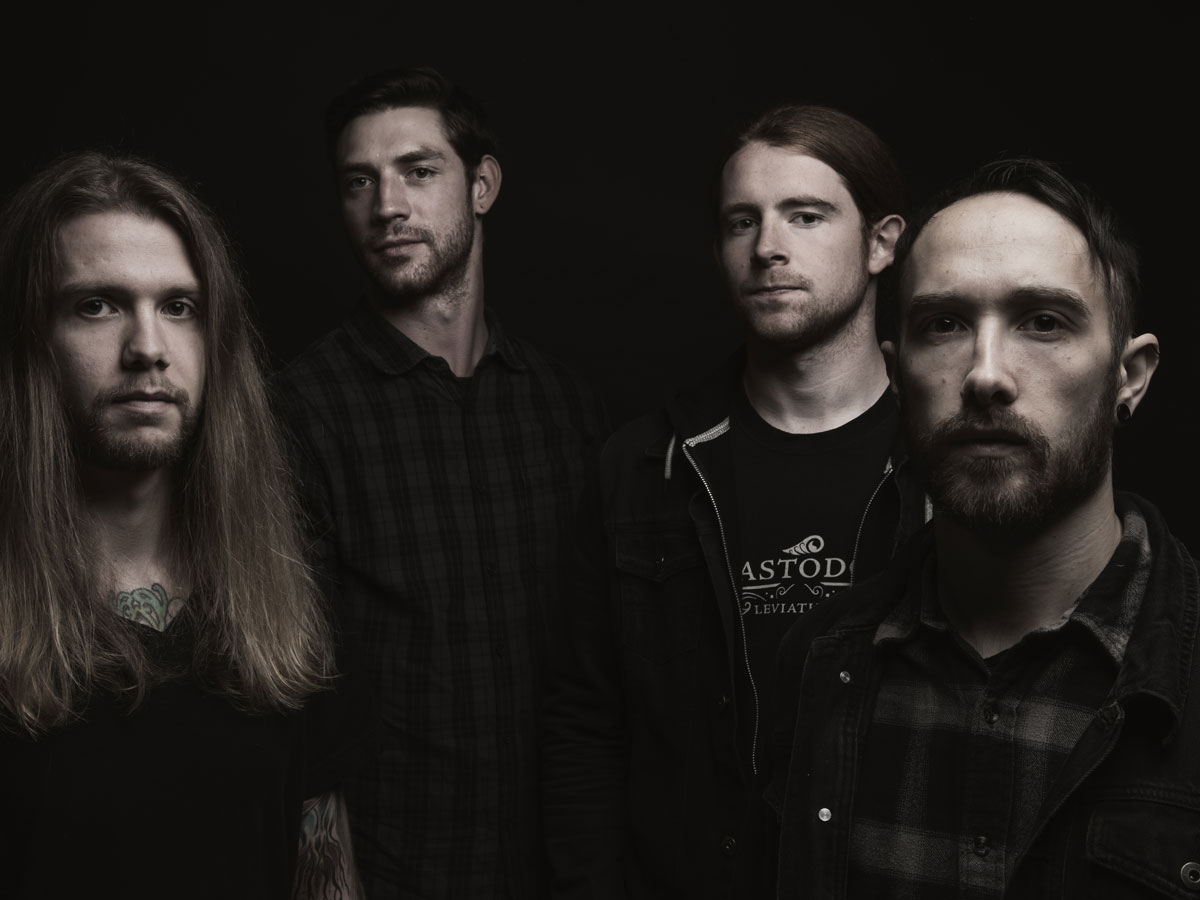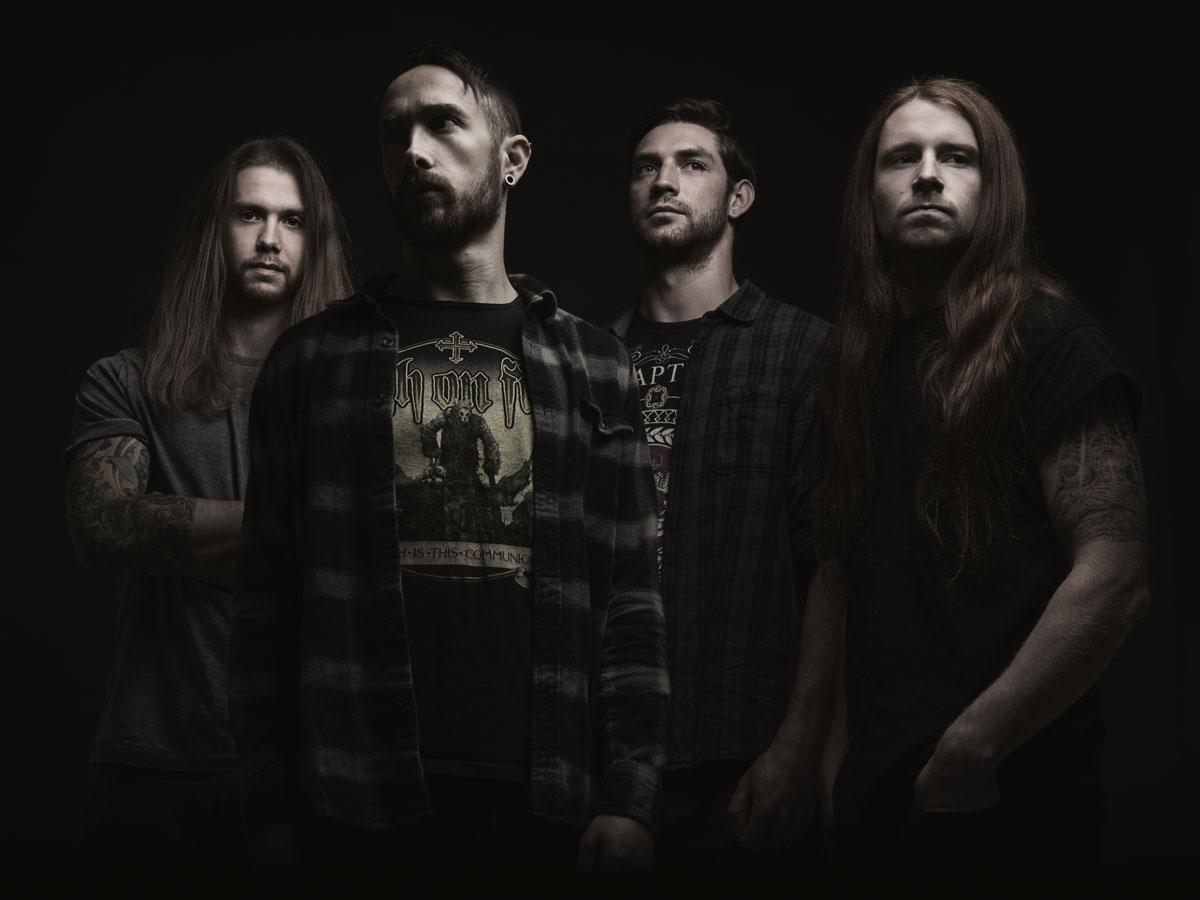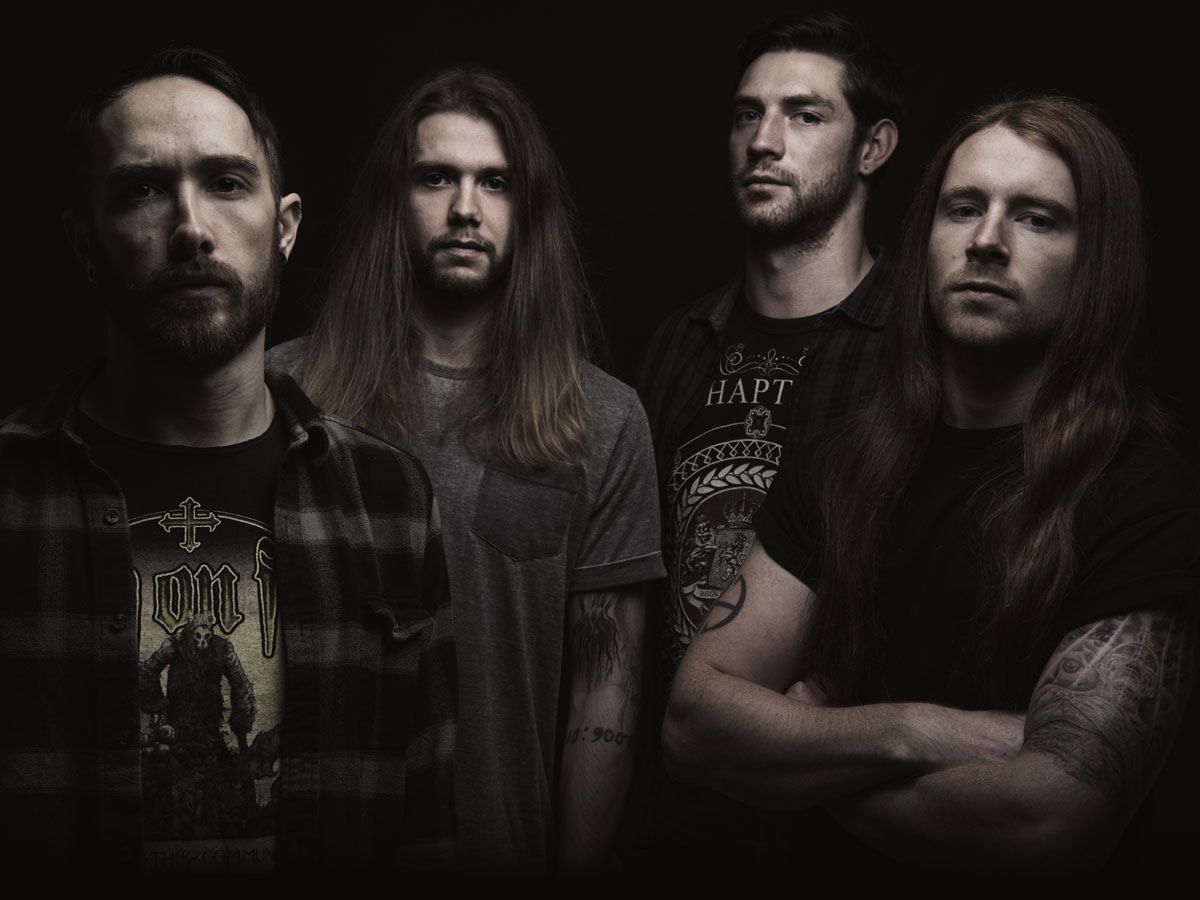Sylosis on the anatomy of new album Dormant Heart
Josh Middleton talks chops

Introduction
Sylosis’ fourth album confirms them as the UK’s finest modern metal band, with frontman Josh Middleton [pictured centre-right] one of the most gifted players to emerge from the genre in recent times. We examine the core elements of his style on new record Dormant Heart.
The best metal bands are lone wolves; they don’t quite fit in and they don’t try to. They walk their own path. That’s especially true in the UK, the birthplace of the genre, where respect is earned at the grass roots by offering something special that can turn cynicism to respect.
Four albums in with not a misstep in sight, Reading’s Sylosis have doggedly gone and marked themselves as the UK metal band to hear for musicianship and killer riffs with Dormant Heart.
It’s an irresistible blend that could unite metal’s warring factions and endless sub-genres with its extremely tasty stew of thrash, sludgy groove, progressive rock atmospherics and superlative lead. One that sounds genuinely passionate and unique amidst the sheen of modern metal rolling out of studios in 2015.
With Josh Middleton, Sylosis have a humble leader who lets his chops do the talking. And they say a great deal. We dissect the vital organs of his playing anatomy that have helped him evolve even further on Dormant Heart, and also find he’s got wisdom to share for other guitarists looking to improve their own metal playing.

Diversity
“The main foundation of our sound is thrash, we love that, and we’re always going to have that.
"But in the past we’ve had so many songs with that really fast tempo that we needed to take a step back and have some more variety in there. So different types of songs, different tempos and different types of riffs to break it up somewhat. That was a focus on Dormant Heart.”
Groove
“One of my favourite albums, and of the whole band’s actually, is Far Beyond Driven by Pantera. That album is predominantly all about the groove, and we hadn’t really touched upon that too much before.
"It’s constantly an inspiration, even though compared to a lot of technical metal it’s quite straightforward. I can never get sick of it. Some of the Pantera groove has crept its way into this album.”

Vocals
“My vocal range has expanded a bit through experience. It’s something that came with time. I always try to pitch the screams, so they’re slightly musical and there’s a melody.
"It means sometimes that I can focus more on vocal hooks and have riffs take a back seat. But that can be sort of worrying to our fans when I start saying stuff like that. We put up a song online called Leech, which is definitely one of the more stripped-back songs, really basic riff-wise so the vocals can take over.
"That’s not necessarily a direction we’re heading in. There’s more variety, but we’re always going to have the fast stuff, always have the more technical side, too.”
Atmosphere
“A lot of technical metal bands are relying on technology and albums are coming out with programmed drums, so it all sounds sort of soulless and there’s not really any atmosphere. We’ve always been into bands like Cult Of Luna and Neurosis, who create a real atmosphere on their albums.
"Film scores and even early Portishead are a big influence, too. It’s important to us to not just write riffs but have something that creates an atmosphere and sucks you into a world.”
Arrangement
“We always try to have the solo be something to look forward to in the song... and not just a case of wanting to hear something flashy. It’s something that helps to build the song, or change the dynamics. Paying attention to the backing of a solo is just as important as what I’m playing.
"The music has got to be interesting, and we try not to just rehash a riff that we’ve already used and just stick a solo over the top of it. That works sometimes, but it is nice to make something more special.”

Scoop
“When you play in standard E tuning like us you can afford to be a bit more scooped and less harsh on the ear. A lot of metal bands have got into using more midrange tones. And especially when you down-tune so much, you do need it to get some of the note clarity.
"In standard, if you’ve got too much midrange it’s a bit too nasty on the ear. So we can go for a bit more of an old-school, or even slightly more Pantera tone. Which is more scooped than a lot of modern bands but works and you can still hear all the notes. It’s a little bit more pleasing than what I’m hearing from more modern bands.”
Chemistry
“Our other guitarist [Alex Bailey] keeps me on my toes because he’s an amazing player. He’s really humble, but I have tried to get him to go into more lead stuff. Now and then he takes over, not necessarily leads, but the more interesting parts live when I have to concentrate on vocals.
'On this one, there’s a song called Harm and we’re known for these sweep picking parts, and it’s got a dual-harmonised sweep picking part. So we’re harmonising that technical stuff now.
"That’s probably the most technical thing we’ve done, so anyone who thought the Leech song was us going more straightforward, wait until they hear that one because it’s probably the most technical thing we can do with both guitarists.”
Sweeping
“We’ve always used a lot of sweep picking and we’re sort of known for that at this point... It’s always done to outline interesting chords that I couldn’t really be playing with a ton of distortion.
"It’s about making a hypnotic loop, and that’s more interesting to me than sticking it in a solo for the sake of it and just showing off. I try to do it in a musical way that’s melodic.”

Rob is the Reviews Editor for GuitarWorld.com and MusicRadar guitars, so spends most of his waking hours (and beyond) thinking about and trying the latest gear while making sure our reviews team is giving you thorough and honest tests of it. He's worked for guitar mags and sites as a writer and editor for nearly 20 years but still winces at the thought of restringing anything with a Floyd Rose.

